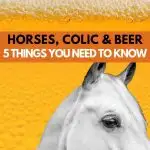Treating colic in horses with beer can help, but only for a spasmodic colic, and even then you shouldn’t do it without a vet’s supervision. Even if you don’t have a vet you work with normally, it’s important to find one to call before you try to treat any suspected colic with beer.
Home remedies for colic in horses include using warm, flat beer, as well as using a baking soda solution to have a laxative effect helping to clear any obstructions. In fact, horse veterinarians will often give mineral oil and water via a nasal gastric tube to a horse that has colic to help lubricate the intestines and get things moving.
But, again, you need to get on the phone with your vet first and explain what’s going on. Quick treatment can be life or death depending on the type of colic, and a veterinarian is essential to help diagnose the type of colic and then move to treatment options. While mild cold results in abdominal pain, it can also be a sign of larger gastrointestinal issues which could require surgical intervention or abdominal surgery.
According to Neil P H Hudson, of the University of Edinburgh’s Royal School of Veterinary Studies, among domesticated horses colic is the leading cause of premature death (source).
Table of Contents
Key Takeaways:
- Colic can be very dangerous, and treatment is time-sensitive, so call your vet first.
- Warm, flat beer can be a treatment for spasmodic colic, but not other types of colic.
- The most common early signs of colic indicating you should contact your vet are not eating, restlessness or anxiety, looking at or kicking at the belly, looking at or biting the flank, and sweating without exertion (among others covered below).
What Causes Colic?
There can be many causes of colic, but Dr. Anne Wooldridge of Auburn VetMed explains how diet can have a big impact:
Sometimes changes from summer to fall and then into winter that have to do with with things called impactions. What that means is you often have a horse that was eating sort of high moisture grass, and getting a lot of moisture in their feed that then switches to hay because now there’s no grass anymore and the hay’s drier, if they don’t drink as much then you can end up with that hay forming an impaction.
(Source)
1. Horses Can Drink Beer
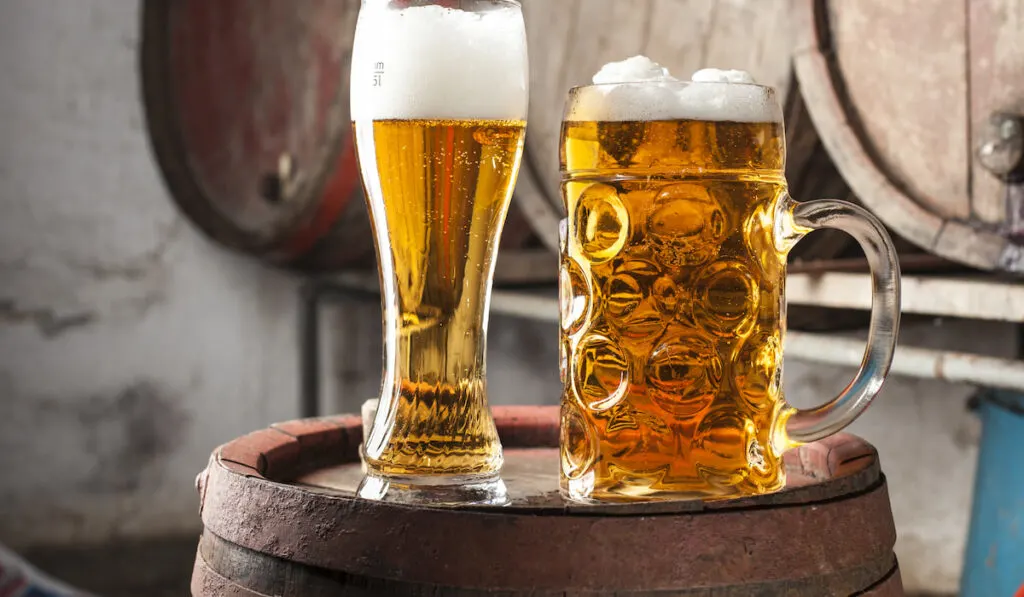
I admit I did know this one. At least, I’ve known a few cowboys who’d give their horses a few sips of their beer and laugh about it. Some horses seem to enjoy the flavor.
I suppose it has to do with the taste of hops and barley. I don’t care for the stuff myself so I am not quite sure why anyone drinks it. In any case, in very small quantities it doesn’t seem to do them any harm.
2. In WWII Beer Was Recommended for Colic
In cases where a veterinarian was not available, WWII-era documents recommended soldiers using beer to treat colic. Of course, some of the remedies they used back then are questionable with recommendations for giving turpentine, eggs, and milk, or maybe even alcohol! (source)
To get why soldiers used beer for colic, consider what other options they had. On the battlefield, there may not have been access to a veterinarian. Today we might tube a horse or x-ray it to determine what the issue is, they didn’t have that luxury.
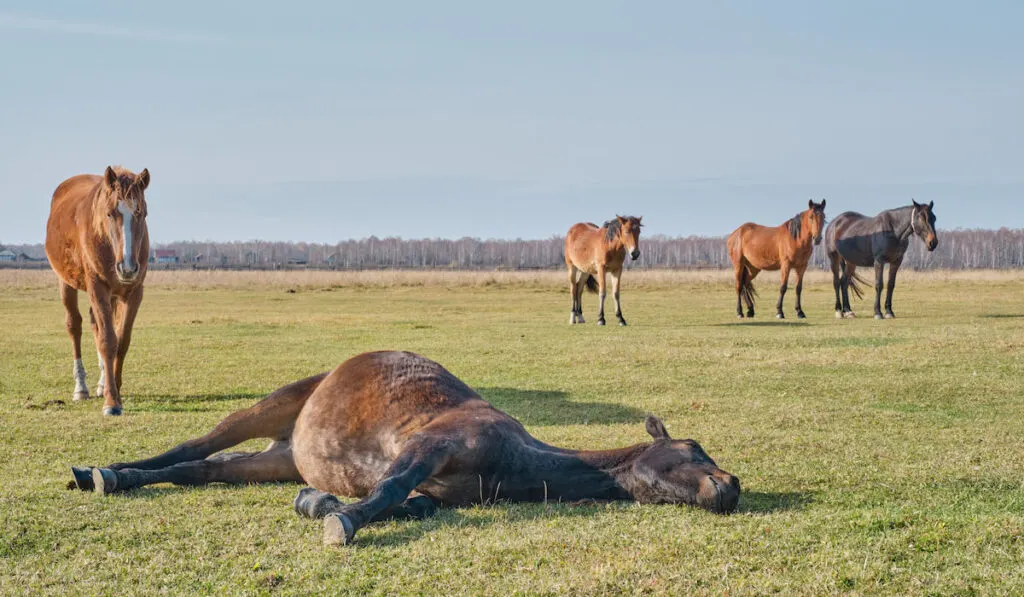
3. Different Treatments for Different Types of Colic
Not all colics are the same and different causes may indicate different treatments. Colic is a general term used to describe the condition where a horse is suffering from abdominal pain for whatever reason. The originating cause can be any of several factors including:
- Gas
- Dehydration
- Impaction
- Worms
- Twisted Intestines
- Sand Colic
- Spasmodic Colic
- Enteritis or Colitis
Twisted Intestines are probably the worst form of colic and are often irreparable without surgery. This is where a piece of the intestine has been able to twist around itself and cause loss of blood flow.
4. Types of Colic That Can Be Treated with Beer
If you think your horse has colic, call your vet before trying any treatment. There is no way for you to know what type of colic your horse is suffering from. Anytime your horse is in discomfort, it is best to leave the diagnosis to the professionals. That being said, here is what I found about treating colic with beer.
Spasmodic colic is the type of colic most likely to respond to beer as a treatment. This type of colic is typically caused by muscle spasms in the intestines. It’s kind of like indigestion.
HorseZone.com wrote about asking an Australian vet about beer for colic. That veterinarian, Dr. Paul, stated that on occasion he has seen a horse trailer ride help spasmodic colic but sometimes he will advise his client to give the horse a beer until he gets there. (source) In any case, he still recommends only doing so on advice of the Veterinarian and certainly not as the only “treatment” that is administered.
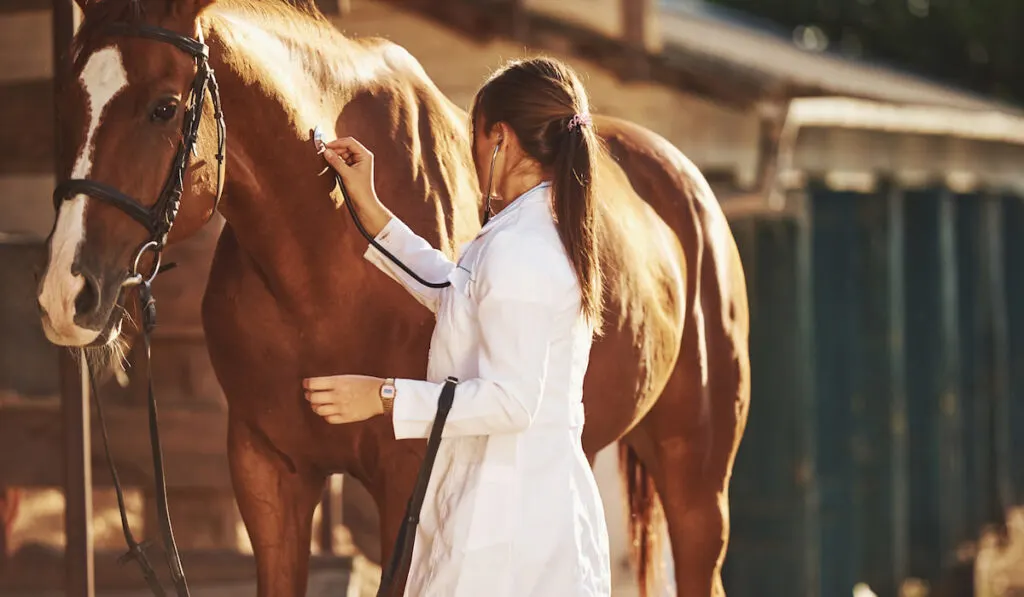
5. Colic Symptoms Differ from Horse to Horse
Just as humans have different pain tolerances, so do horses. Where one horse may seem extremely lethargic and unable to move or rolling constantly, another with the same level of pain may just decide not to eat his dinner that night.
This can make it hard to determine if a horse is experiencing colic symptoms. The best way to know is to be familiar with your horse’s behavior. At feeding time if he is normally right at the stall front waiting for you to drop his hay but now he’s standing in the back “asleep”, that might indicate there is a problem.
Keeping that in mind, some common symptoms of colic in horses include:
- Loss of Appetite
- Rolling or wanting to roll with increased frequency.
- Laying down or wanting to lay down abnormally.
- Looking at or kicking at the belly.
- Swishing tail
- Increased respiration
- Decreased capillary refill time
- Pawing
- Parking Out
- Sweating without exertion
- Agitation
- Dullness
If you notice any changes in your horse or suspect colic, the best thing to do is write down the time and symptoms you think you see and call your veterinarian as soon as possible. With colic, the earlier you catch it the more likely your vet is going to be able to help your horse’s discomfort.
If Not Beer, Then What?
What if your horse doesn’t have spasmodic colic or you don’t have a beer on hand? What should you use to treat your horse for colic?
Your vet can guide you. For some colics, like gas colic, walking the horse might help. With other colics, like impaction colic, walking won’t help anything and it is probably better to keep your horse still and quiet.
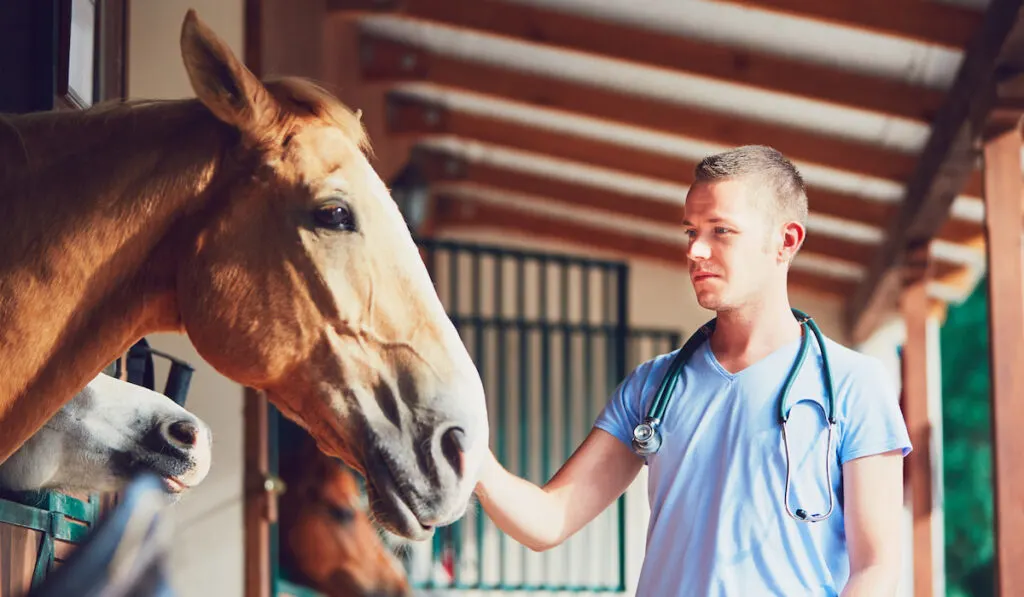
When you call your veterinarian he or she will ask about the symptoms and let you know when they will be able to come out. They typically carry most of the supplies needed for treatment right on their truck which may include:
- Laxatives
- Fluids
- Pain Relief
- Antispasmodics
- Tubing Equipment
In addition, your vet will be able to look at your horse’s vital signs to help determine what type of colic they may be suffering from. Your veterinarian might, for example, do a rectal exam and remove some manure to test for sand.
Related Questions
How can I prevent colic in my horse? There are several steps you can take to prevent your horse from colicing. These include:
- Working with your vet to establish a deworming program.
- Switching feeds slowly.
- Ensuring hydration by always having clean water available.
- Exercising your horse regularly.
- Feed horses in feeders or on the floor with rubber mats to prevent sand intake.
There is no 100% preventative for colic. The most you can do is practice good stable keeping habits and hope that you don’t have to deal with this deadly horse health issue.
Can colic kill a horse? Colic can be fatal and death can happen quickly. It is imperative that you call your veterinarian at the first sign that your horse may be in distress. While not all colics are treatable, early treatment can help to save your horse’s life.
Can a horse survive colic? When a horse colics, the prognosis for survival depends on a variety of factors including:
- How soon is the colic recognized?
- How soon does veterinary treatment begin?
- What type of colic is it?
Each type of colic is different and some types. like gas colic and dehydration colic, are less likely to cause death when caught early.
Should you walk a horse with colic? In most cases, it’s OK to walk a horse with colic unless they are very resistant to being moved or trying to throw themselves to the floor and roll. Sometimes it is better to let them just stand quietly if they will.
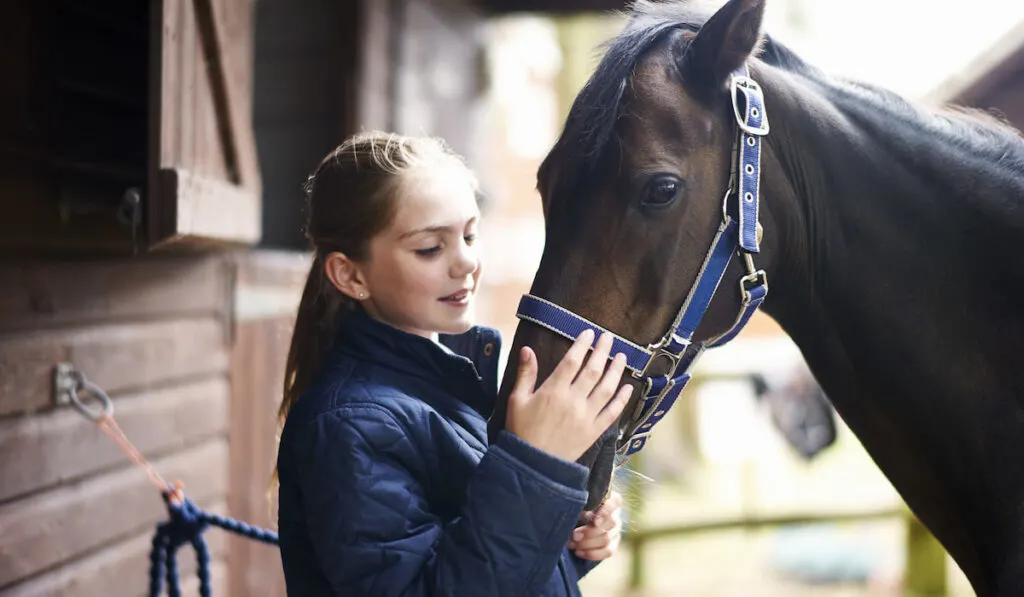
Final Thoughts
I hope you have found this article helpful. Again, my number 1 recommendation is that if you feel that your horse is colicing, call your vet. No matter how much the vet call is, think about how heartbroken you will be if you wait too long and there is a big issue. While beer may help with colic in very limited conditions, your veterinarian will be able to advise the best course of action to get your equine partner feeling his best again!
Related Posts
- Average Lifespan of Horses and Ponies with Chart
- Grass As A Horse Food: Why It Isn’t Great
- Tips for Feeding Your Horse Only Once Per Day
- Foamy Mouth in Horses: What Causes It & Is It Good Or Bad?

